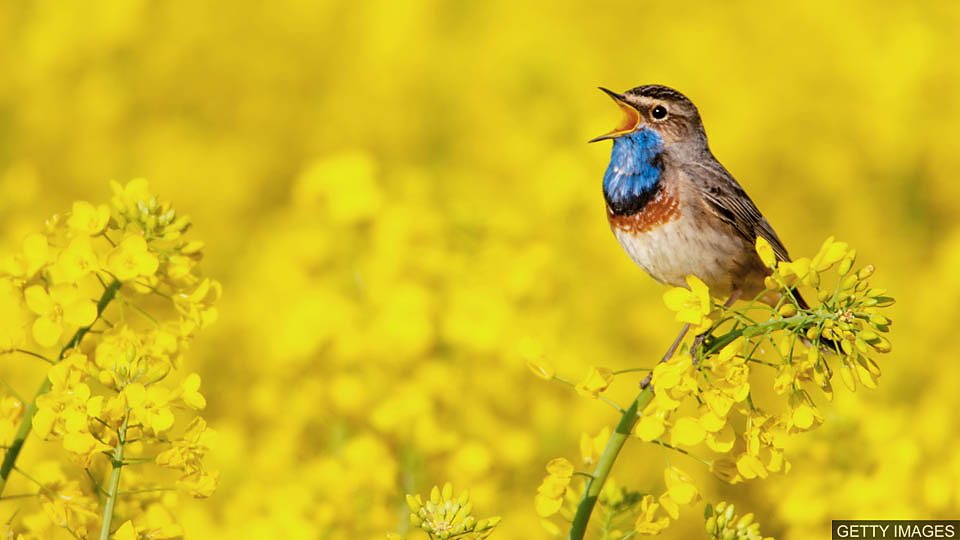两项主要研究显示,亚洲及美国的鸟类总数 “陷入危机”。研究发现,美国和加拿大的鸟类数量在 50 年内减少了 30 亿只。
Bird markets on Java, Indonesia’s most densely populated island, are a cacophony of song. This is a trade fuelled by a national passion for birdsong, including competitions where the best singers can win prizes worth thousands of pounds.
在印度尼西亚人口最密集爪哇岛上,鸟市上充斥着刺耳嘈杂的歌声。推动这行买卖的是全国人民对鸟儿歌声的热爱,比如,最佳“歌手”可以赢得价值数千镑的奖项。
But scientists studying the trade say there are now more birds in cages in Java than there are in the wild. This conclusion comes from one of two major studies that point to a global crash in bird numbers.
但研究这行买卖的科学家们说,在爪哇岛上,关在笼子里的鸟的数量比野生的要多。这一结论来自两项表明全球鸟类数量锐减的主要研究之一。
The other, by scientists in the US and Canada, revealed there are three billion fewer birds in North America today than there were in 1970. Habitat loss driven by human activity has been blamed.
另一项由美国及加拿大的科学家们开展的研究显示,北美的鸟类数量比1970年减少了 30 亿只。人类活动导致的栖息地丧失是罪魁祸首。
But researchers are hopeful that the conclusion will be a trigger for the protection of important habitats and migration routes to make much needed space for birds to return.
但研究人员们希望,这一结论会激起人们保护重要栖息地和迁徙路线的意识,从而给鸟类数量回升创造出急需的空间。
词汇
densely 密集地
cacophony 嘈杂声
fuelled 被推动、加强的
global crash 全球数量猛降
habitat loss 栖息地流失
trigger 激起,引发
migration routes 迁徙路线
阅读理解:请在读完上文后,回答下列问题。
1. Where are more than half of birds in Java now kept?
2. What has caused a fall in North America's bird population, according to research?
3. True or false? A global economic crash has been blamed for the decline in bird numbers.
4. Why do researchers think these studies might bring some good news for future bird populations?
答案
1. Where to more than half of birds in Java now kept?
Scientists studying the songbird trade say there are now more birds in cages in Java than there are in the wild.
2. What has caused a fall in North America's bird population, according to research?
Habitat loss driven by human activity, has been blamed for there being three Billion fewer birds in North America today than there were in 1920.
3. True or false? A global economic crash has been blamed for the decline in bird numbers.
False. Two major studies have shown a global crash in bird numbers – but nothing to do with the economy!
4. Why do researchers think these studies might bring some good news for future bird populations?
Researchers hope that the results of the studies will be a trigger for the protection of important habitats and migration routes to make much needed space for birds to return.

